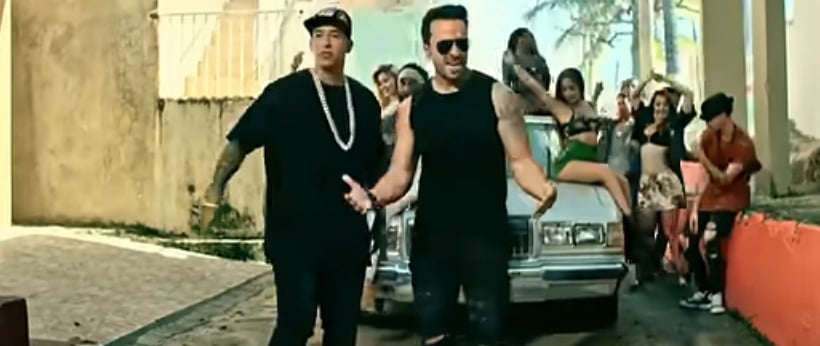Why "Despacito" makes me cry
Melody
9/2/2017


In early August 2017 Luis Fonsi and Daddy Yankee’s “Despacito” music video became the first-ever video to hit three billion views on YouTube. Three BILLION. That’s a number that’s almost half the population of the planet. It’s 235 million hours of music. Just on YouTube, for that one version of one song. That accomplishment moved me to finally write this post.
The first time I heard the song on the radio in April, I turned the volume way up and grooved in my seat and though I couldn’t see my own face I could feel it transforming from an expression of disbelief into one of the purest radiant joy. As the song ended I got shivers and started to cry, because I could feel it was something incredibly important.
Music is universal, and being exposed to music born in other regions, from other cultures, is the fastest and most powerful shortcut I can imagine to realizing the truth of our shared humanity. Amid loud messages telling Americans to fear and hate “outsiders” or “others”—messages that dehumanize—this Latin song with the reggaeton beat and the cumbia flavor and the Spanish language found its way onto the mainstream U.S. charts and stayed there. As of this writing it’s been number one on the charts for over three months.
How much of that is Justin Bieber’s doing? I say, probably not a lot. The record-smashing video is of January’s version of the song (without Biebs), for one thing, and he himself recognized the hit and requested to record a version of the track rather than being approached to do it. But also I say, does it matter? Each version of this song, in my estimation, is one with soul, genuinely true and not engineered to appeal to the English-speaking masses. While I love the big crossover Latin hits of years past, this is not the same as “Macarena” or “Livin’ La Vida Loca” or “Mambo No. 5” (can you believe that counted as a Latin hit in the U.S.?).
In a way that’s difficult to describe, “Despacito” also reminds me of my deep love for and pride about Zumba. My first Zumba class was the first time I’d ever really heard Latin or Indian or African rhythms, this music with history and passion and vivacity that had been hidden from me by circumstance. And oh, did I come to adore it. Zumba predates YouTube, and that the fitness format reached such astounding heights of popularity powered by music from all over the world is something not fully appreciated. It builds joyous communities not just on the local scale but also on the global one.
And love or hate the song of the summer of 2017, it has made a subtle and powerful statement. Our spirits are made up of more than one language and more than one beat. And that is beautiful.
This site is owned and operated by Melody Nova, a licensed ZIN™ member. See my ZIN profile at the Zumba website.
Zumba®, Zumba Gold®, and the Zumba Fitness logos are trademarks of Zumba Fitness, LLC, used under license.